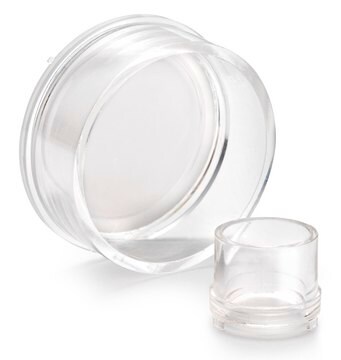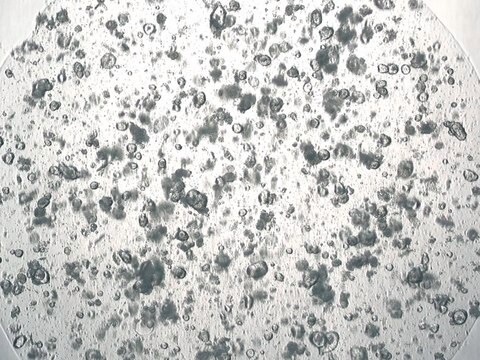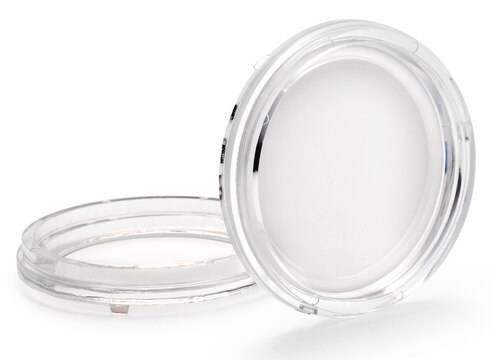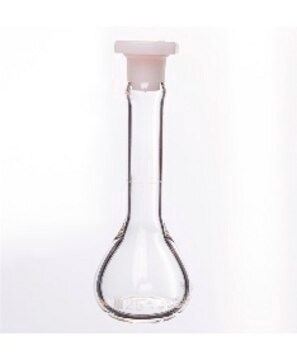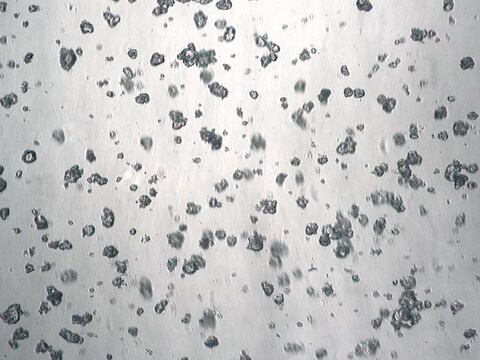SCC725
3dGRO® Colorectal Organoids (CSC.406N)
Sinônimo(s):
Colon Organoid, Colon Tumor Organoid, Colorectal Cancer Organoid, Human CRC Organoids
Faça loginpara ver os preços organizacionais e de contrato
About This Item
Código UNSPSC:
41106514
NACRES:
NA.81
Produtos recomendados
fonte biológica
human
Nível de qualidade
embalagem
vial of ≥1500 organoids vial
fabricante/nome comercial
Millipore
técnica(s)
cell culture | stem cell: suitable
Condições de expedição
liquid nitrogen
temperatura de armazenamento
−196°C
Aplicação
- Viability: =>1500 viable organoids/vial
- Organoid Growth: Pass
- Cells are tested negative for infectious diseases by a Human Essential CLEAR panel by Charles River Animal Diagnostic Services.
- Mycoplasma Contamination: Negative
- STR Profile: Pass
Características e benefícios
Cryopreserved patient derived colorectal cancer organoids (PDOs)
Descrição-alvo
Colorectal cancer accounts for roughly 10% of all cancer cases worldwide with more than half of all patients with CRC developing metastatic disease leading to death. Recently, tissue derived organoids have emerged as a more predictive 3 dimensional cell culture model of disease. 3D organoid cultures conserve the original genetic and phenotypic characteristics of the primary tissue allowing for their application in many research fields included drug development, personalized medicine and potential therapeutics. In vitro cultured tumor organoids have also been shown to predict patient response to chemotherapeutics. PDOs derived from colorectal cancer (CRC organoids) have been used for cell modeling and to investigate the function of cancer related driver gene mutations including APC, TP53, KRAS, BRAF, PIK3CA etc.
We are now offering a comprehensive biobank of highly characterized tissue-derived human gastrointestinal organoids from normal and diseased patients. The intestinal organoid biobank contains over 50 highly characterized intestinal organoids from both normal and diseased patients derived from multiple regions of the digestive systems including small intestine (duodenum, ileum), stomach, rectum and colon.
Cell Line Characteristics
We are now offering a comprehensive biobank of highly characterized tissue-derived human gastrointestinal organoids from normal and diseased patients. The intestinal organoid biobank contains over 50 highly characterized intestinal organoids from both normal and diseased patients derived from multiple regions of the digestive systems including small intestine (duodenum, ileum), stomach, rectum and colon.
Cell Line Characteristics
- Sex: Female
- Age: 69 Years
- Organ: Colon
- Disease: Normal Adjacent Tissue (KRAS Mutation: Wildtype)
Armazenamento e estabilidade
Store in liquid nitrogen. The organoids can be cultured for at least 10 passages after initial thawing without significantly affecting the cell marker expression and functionality.
Outras notas
3dGRO® is a trademark of KGaA, Darmstadt, Germany.3dGRO® organoids were derived utilizing HUB Organoid Technology.The purchaser of this product shall agree to HUB′s terms of use, which shall be separately acknowledged and accepted by such purchaser, prior to transfer of this product to purchaser.
Informações legais
3dGRO is a registered trademark of Merck KGaA, Darmstadt, Germany
Exoneração de responsabilidade
RESEARCH USE ONLY. This product is regulated in France when intended to be used for scientific purposes, including for import and export activities (Article L 1211-1 paragraph 2 of the Public Health Code). The purchaser (i.e. enduser) is required to obtain an import authorization from the France Ministry of Research referred in the Article L1245-5-1 II. of Public Health Code. By ordering this product, you are confirming that you have obtained the proper import authorization.
Unless otherwise stated in our catalog or other company documentation accompanying the product(s), our products are intended for research use only and are not to be used for any other purpose, which includes but is not limited to, unauthorized commercial uses, in vitro diagnostic uses, ex vivo or in vivo therapeutic uses or any type of consumption or application to humans or animals.
Código de classe de armazenamento
12 - Non Combustible Liquids
Classe de risco de água (WGK)
WGK 3
Ponto de fulgor (°F)
Not applicable
Ponto de fulgor (°C)
Not applicable
Certificados de análise (COA)
Busque Certificados de análise (COA) digitando o Número do Lote do produto. Os números de lote e remessa podem ser encontrados no rótulo de um produto após a palavra “Lot” ou “Batch”.
Já possui este produto?
Encontre a documentação dos produtos que você adquiriu recentemente na biblioteca de documentos.
Nossa equipe de cientistas tem experiência em todas as áreas de pesquisa, incluindo Life Sciences, ciência de materiais, síntese química, cromatografia, química analítica e muitas outras.
Entre em contato com a assistência técnica